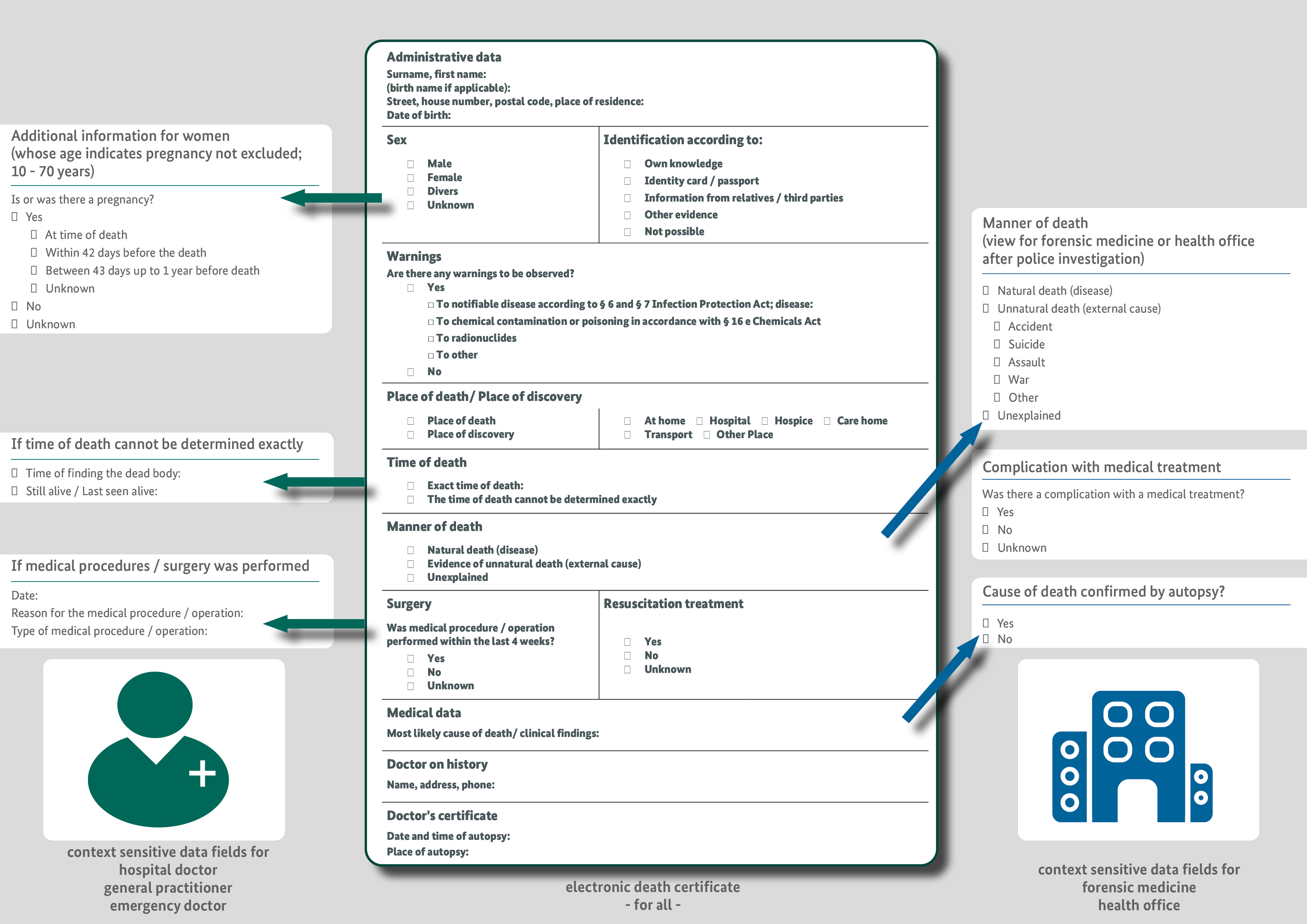Pilot of a nationwide electronic death certificate
About the project
Together with the Federal Statistical Office (Destatis), the Federal Institute for Drugs and Medical Devices (BfArM), on behalf of the Federal Ministry of Health, is conducting a project aimed at piloting a nationwide electronic death certificate.
Currently, there are 16 different death certificates in Germany, which have to be filled out manually by doctors and processed by registrar’s offices and local health offices according to legal requirements. Subsequently, the causes of death are coded in the statistical offices of the Länder according to the WHO guidelines of the ICD-10, which then flow into the cause of death statistics of the federal government and the federal states. The cause-of-death statistics form the basis of extensive research into the causes of death as well as the health reporting system of the federal and state governments, whereby the evaluation is currently still monocausal and only depicts the single underlying cause of death, which is determined according to the ICD-10 set of rules. In some federal states, single steps in the processing of death certificates and the coding of causes of death are already carried out electronically. Overall, however, the digital flow of information is still very heterogeneous and non-continuous.
Our project aims to significantly increase the quality of cause-of-death statistics and to simplify and accelerate the further processing of the certificates by recording a nationwide and standardised electronic death certificate. The provision of up-to-date data on causes of death has become even more important, especially under the impression of the current pandemic.
The pilot project contains four work packages, some of which build on each other and are based on the results of the preliminary project "Rough conception of a nationwide electronic death certificate". At the beginning, a proof-of-concept (user study) was conducted with an IT service provider, which was able to prove the technical feasibility of an electronic death certificate.
Intermediate project results
At an expert workshop organized by the BfArM in February 2020, participants from relevant institutions and authorities, both from the medical and administrative sectors, worked out and consolidated the content of a data set (see graphic).

The content of that data set forms the basis for the design of a nationwide uniform electronic death certificate, which promises the following advantages: Through context-sensitive menu navigation, to reduce efforts involved in issuing an electronic death certificate by doctors. By means of information and auxiliary fields as well as plausibility checks, the correct completion of the death certificate in electronic form can finally be facilitated. A more comprehensive use of information on the death certificate, especially through legibility, standardisation and plausibility checks, a reduced proportion of incomplete and incorrect death certificates and a uniform, largely automated coding of causes of death will help to increase the quality and timeliness of the data and to reduce the overall bureaucratic burden. An assessment of the content of the data set with doctors in both an initial electronic and a paper version was carried out, so that an already revised content of the data set will be available for piloting.
Furthermore, an electronic death certificate portal was technically specified to ensure later implementation by municipal IT service providers, software system providers and other stakeholders.
Current work
The testing of the draft of a nationwide electronic death certificate will take place in pilot regions. Contracts are currently being drawn up and corresponding preliminary work is being done to develop an application that will enable doctors to issue a death certificate electronically on mobile devices. In addition, a training video is to explain both the general background of the cause of death statistics and the use of the electronic death certificate application. The piloting will be accompanied by scientific institutes in order to shed light on the project from different perspectives.
